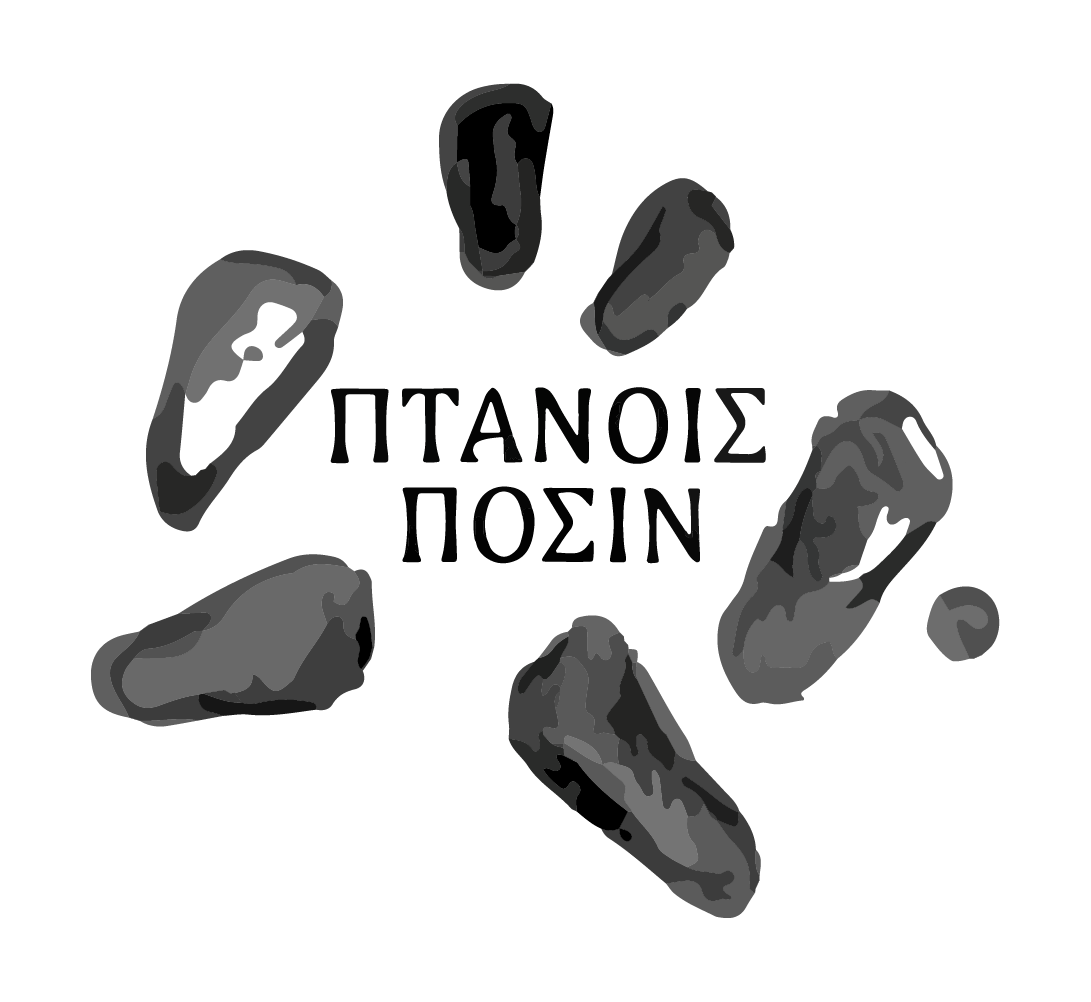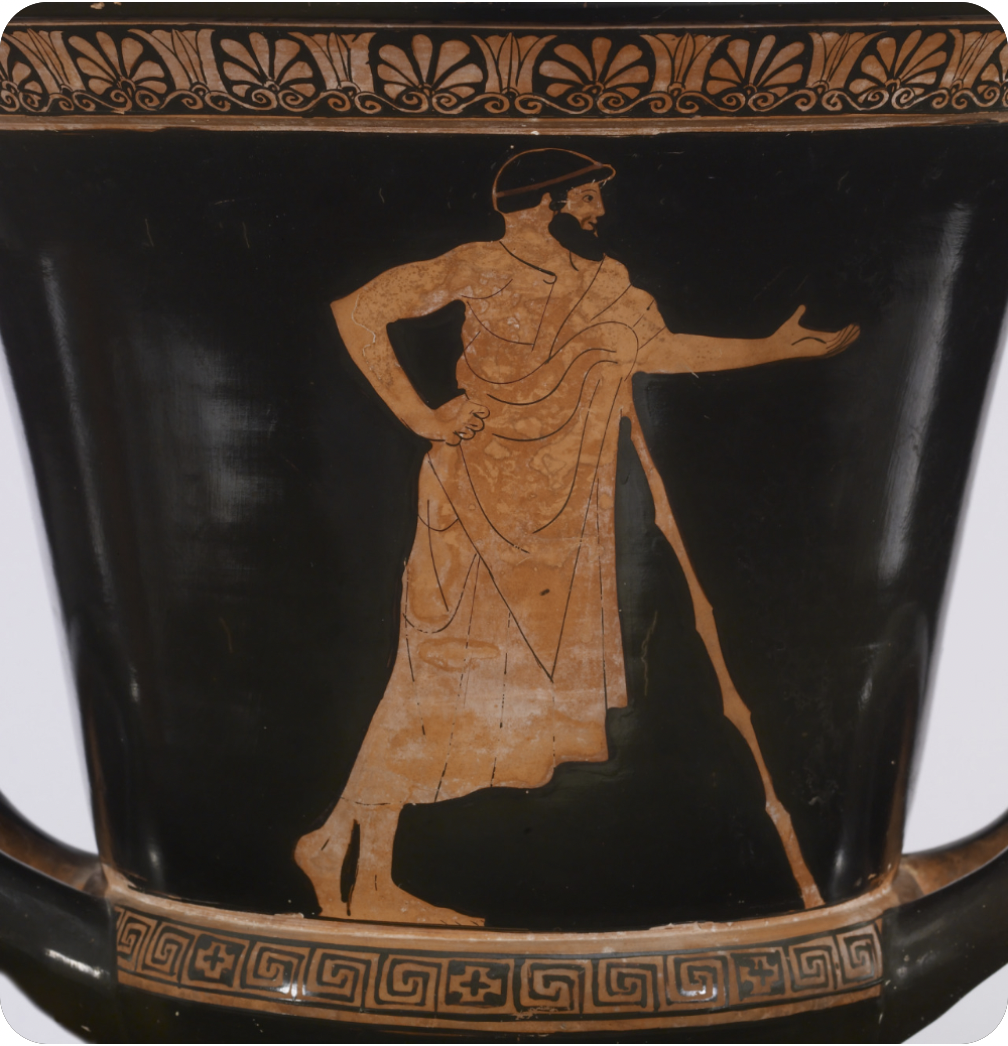IG XI 4 528
Phanostratos of Halicarnassus, the son of Herakleides: tragic poet
Date:
first decades of the 3rd century BC
Edition:
[ἔδο]ξε[ν τῆι βουλῆι καὶ τῶι]
[δήμ]ωι· Ἀχ[αιὸς Φανοδίκου?]
[εἶπε]ν· ἐπειδὴ [Φανόστρατος]
[Ἡρα]κλείδου Ἁ[λικαρνασσεὺς]
5 [ἀνὴρ] ἀγαθός ἐ[στι περὶ τὸ ἱερ]-
ὸν καὶ τὸν δῆμ[ον τὸν Δηλί]-
[ω]ν· δεδόχθαι [τῶι δήμωι· εἶναι Φ]-
ανόστρατον πρόξενον [Δηλίων κ]-
αὶ αὐτὸγ καὶ ἐκγόνους καὶ [εἶν]-
10 α̣ι <αὐτοῖς> ἀτέλειαν καὶ γῆς καὶ οἰκία[ς ἔγκ]-
τησιν καὶ προεδρίαν καὶ πρόσο[δον π]-
ρὸς τὴμ βουλὴν πρώ[τοις] μετὰ [τὰ ἱ]-
[ερ]ὰ καὶ [τἄλλ]α ὅσαπερ τοῖς ἄλ[λ]-
[οι]ς προξένοι[ς κ]αὶ εὐεργέταις
15 [τοῦ ἱ]εροῦ [καὶ το]ῦ δήμου τοῦ Δη-
[λίω]ν δέδ[οτα]ι· ἀναγράψαι δὲ τὸ ψή-
[φισμ]α τόδ[ε τὴ]μ μὲμ βουλὴν εἰς
[τὸ β]ουλευτήριον, τοὺς δὲ ἱερο-
[ποιο]ὺς εἰς τὸ ἱερόν.
Translations (en):
“It was resolved by the council and the assembly; Achaios, the son of Phanodikos, proposed: since Phanostratos of Halicarnassus, the son of Herakleides, shows good will towards the sanctuary and the people of Delos: It was resolved by the assembly that Phanostratos from Halicarnassus, the son of Herakleides, may be proxenos of the Delians, both he and his descendants, and may they benefit from exemption from the taxes, the right to possess land and home, privileged seating at the festivals and the right of priority at the council, after the sacred matters, and all further privileges granted to the other proxenoi and benefactors of the sanctuary and the people of Delos. The council shall have this decree inscribed at the bouleuterion and the hieropoioi at the sanctuary.”
Translations (it):
“Sembrò bene al consiglio e all’assemblea. Achaios figlio di Phanodikos(?) propose: poiché Phanostratos di Alicarnasso figlio di Herakleides si dimostra un uomo benevolo nei riguardi del santuario e del popolo dei Delii: è sembrato bene all’assemblea che Phanostratos di Alicarnasso figlio di Herakleides sia prosseno dei Delii, sia lui sia i suoi discendenti, e che a loro siano riconosciuti l’esenzione dalle tasse, il possesso di terra e casa, la proedria e il diritto di precedenza a comparire per primi in consiglio dopo gli affari sacri e tutti gli altri medesimi vantaggi accordati agli altri prosseni ed evergeti del santuario e del popolo dei Delii. Il consiglio faccia incidere questo decreto presso il bouleuterion e gli hieropoioi presso il santuario.”
Commentary (en):
The epigraphic sources variously attest to the career carried out by the tragic poet Phanostratos and the fame obtained in his birth land and abroad, during his life and after his death. The poet achieved at least one victory in the Athenian dramatic festivals, and in Delos he received the proxeny and other privileges, probably for artistic commitment. The city of Halicarnassus acknowledged him, both in life and after his death, as a source of civic pride and as one of the most representative figures of the cultural production of his time.
Commentary (it):
Le fonti epigrafiche attestano variamente la carriera e la fama riscossa dal poeta tragico Phanostratos, in patria e fuori, nel corso della sua vita e ancora molto dopo la sua morte. Il poeta ottenne almeno una vittoria agli agoni ateniesi e a Delo fu insignito della prossenia e di altri privilegi, presumibilmente per onori artistici. La città di Alicarnasso lo collocò sia in vita sia nei secoli a seguire tra le personalità motivo di orgoglio patrio, riconoscendo Phanostratos come uno dei personaggi più rappresentativi della produzione culturale del suo tempo.
Bibliography:
IG II2 2794; IG XI 4, 528; Isager 1997, 1998.
https://www.atticinscriptions.com/inscription/IGII2/3073
IG II3 4 518 (cf. IG II2 3073)

